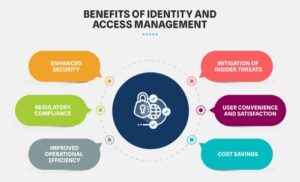
In the fast-paced world of sales, it’s easy to get lost without a clear direction. Sales Key Performance Indicators (KPIs) serve as the GPS in this vast landscape, guiding us to success by providing valuable insights that optimize our sales processes. In business or sales development, I’ve learned that KPIs aren’t just numbers on a screen; they’re the crucial signposts that chart the course to success in sales, business, and even in life.
KPIs: The Compass in Sales and Business
KPIs are the critical metrics that allow sales professionals to measure their performance, identify areas for improvement, and capitalize on opportunities for growth. In industries like technology, AI, digital transformation, medical/healthcare, and IT sales, KPIs are essential for amplifying sales strategies and achieving consistent growth.
For example, during my tenure at IMC Business Consulting Group, I was able to increase sales by 50% year-over-year by strategically leveraging KPIs such as conversion rates, lead generation metrics, and client engagement levels. By keeping a close eye on these metrics, I could fine-tune my sales tactics and ensure I was always on the right path to meeting and exceeding targets.
The KPIs That Matter in Sales Growth. When it comes to driving sales growth, not all KPIs are created equal. Here are some of the most critical KPIs that have consistently guided me to success in various industries
- Conversion Rate:: At Roadmunk, I led a SaaS product initiative that boosted lead conversion from 55% to 81% in just one year. This was achieved by closely monitoring conversion rates and making necessary adjustments to the sales pitch and outreach strategy. Understanding where leads drop off in the funnel allowed me to address obstacles head-on and significantly improve outcomes.
- Revenue Growth: Throughout my career, I’ve consistently driven revenue growth by focusing on KPIs related to sales volume and revenue targets. For instance, while working with Oracle, I generated $3.5M for the client by strategically aligning my sales efforts with revenue-based KPIs. These metrics helped me identify high-potential opportunities and allocate resources effectively to close big deals.
- Customer Acquisition Cost (CAC): In the highly competitive field of technology and AI, keeping an eye on CAC is vital for maintaining profitability. By analyzing this KPI, I was able to optimize my sales processes and reduce acquisition costs, thereby increasing overall profitability. For example, during my campaign with Axiad, I catapulted a new IAM product to secure a 5% market share within the first year while maintaining a low CAC.
- Customer Lifetime Value(CLV): Understanding the long-term value of customers is crucial, especially in industries like IT and healthcare. By focusing on CLV, I’ve been able to cultivate long-lasting relationships with clients, leading to repeat business and referrals. This approach was particularly effective in my work with NetApp, where I managed to acquire new business for hybrid cloud services, ensuring that clients saw the long-term value in our offerings.
KPIs in Life and Athleticism: A Personal Parallel Just as KPIs guide my success in sales and business, they also play a crucial role in my personal life, particularly in my athletic pursuits. As a two-time Rochester Runner of the Year, I’ve learned to set and track KPIs such as pace, distance, and training intensity to ensure continuous improvement and success in races.
These same principles apply in sales—by setting clear goals and regularly assessing progress through KPIs, I can maintain the right intensity and focus needed to achieve top performance. Whether it’s tracking the number of cold calls made or the conversion rate of qualified leads, KPIs are the benchmarks that keep me on course, much like they do in my athletic training.
Why KPIs Are Essential for Sales Strategy To chart a course to the top of sales performance, it’s essential to use KPIs as the foundation of your strategy. By doing so, you can:
- Identify Areas for Improvement: KPIs provide a clear picture of what’s working and what’s not, allowing you to make data-driven decisions to optimize your sales process.
- Stay Focused on Goals: Regularly reviewing KPIs ensures that you remain focused on your targets and don’t get sidetracked by less important tasks.
- Motivate and Inspire: Tracking progress through KPIs can be incredibly motivating. Seeing positive trends and improvements can inspire you to push even harder to achieve your goals.
- Align Efforts with Business Objectives: KPIs ensure that your sales efforts are aligned with broader business objectives, making it easier to demonstrate your impact on the company’s bottom line.
Keep in mind that being a successful business leader in typically involves the following key aspects:
- Deep Product Knowledge: Understanding the technical details and benefits of the products or services you’re selling is crucial.
- Customer-Centric Approach: Focusing on understanding customer needs, building strong relationships, and providing tailored solutions.
- Effective Communication Skills: Clearly articulating value propositions, handling objections, and negotiating
- Goal-Oriented: Setting and achieving sales targets and quotas consistently.
- Adaptability: Staying updated with industry trends, learning new sales techniques, and adapting to changing market conditions.
- Persistence and Resilience: Handling rejections positively and persisting in the face of challenges.
- Collaboration: Working effectively with other teams like marketing, product development, and customer support.
- Data-Driven: Using analytics and CRM tools to track performance, manage leads, and optimize sales strategies
Balancing these elements can lead to a successful career.
Conclusion: Amplifying Success Through KPIs KPIs are more than just metrics; they are the guiding stars that illuminate the path to success in sales, business, and life. By understanding which KPIs matter most and how to leverage them effectively, I’ve been able to consistently achieve and exceed my goals. Whether it’s driving revenue growth, improving conversion rates, or securing high-value contracts, KPIs have been the key to my success, and they can be yours too.
Ready to turn up the volume on your sales success? Start tracking your KPIs today and watch as you navigate your way straight to the top.






